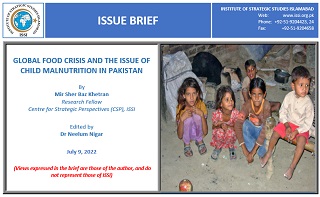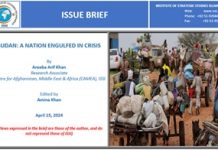During the UN Economic and Social Council Meeting, 2022, Amina Mohammed UN Deputy Secretary-General stated that ‘’there is no doubt that much of the developing world, supported by the United Nations system, bilateral and other partners, made significant progress in enhancing food supplies and reducing hunger over the past 25 years. But, more recently, we have seen global hunger on the rise, reversing decades of progress. Climate change, extreme weather events, conflicts and economic downturns are some of the factors driving growing food insecurity’’.[1] The Deputy-General further stated that some 193 million people experienced food insecurity across 53 countries or territories in 2021. Acute food insecurity is at a record high. The ripple effects of the conflict in Ukraine are extending human suffering far beyond its borders, threatening global hunger on an unprecedented scale.
The UNICEF Child Alert Study reports that soaring food prices due to the Ukraine-Russia war, climate shocks and Covid 19 have wreaked havoc on the families’ ability to feed their children. According to this study, currently, at least 10 million severely wasted children – or 2 in 3 – do not have access to the most effective treatment for wasting, ready-to-use therapeutic food (RUTF). The situation will exacerbate with the ongoing conflict.[2]















